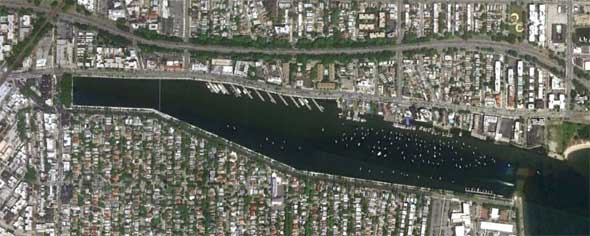Going To Sheepshead Bay? Nah, It’s “The Canal”

Every community has its quirks, and discovering new ones always gives me a little kick. Even if it is small.
The latest discovery I made was on a recent bike ride with reader Eitan K. We were talking about the Bay when Eitan dropped a little Russian knowledge bomb on me. Our Eastern European comrades call Sheepshead Bay the “Canal.”
By no stretch of the imagination is Sheepshead Bay a canal. Canals are artificial waterways made to connect two bodies of water, usually for shipping and transportation purposes. What we have in Sheepshead Bay is… a bay. Duh.
So the misnomer intrigued me. Just as when I lived in New Jersey, I wanted to know what a “Benny” is (explanation: rich people, usually from New York, who come to the beach during the summer. Benny is short for Benjamin Franklin, whose face is on the $100 bill) or why natives always called going to the beach going “down the shore” (explanation: they’re retards).
So, I put the Sheepshead Bites machinery into action, and solicited help from our Russian-American readers.
Here’s what I found, followed by some explanations:
- Canal is the same in Russian as it is in English, both in meaning and pronunciation (more or less)
- The term is mostly used by older Russians, though some in their 20s did admit to using it – at least when talking to babushka
- The actual Russian word for “bay” is zaliv. Only one reader knew this. Several said there is no direct translation for bay
- Younger Russians usually say “I’m going to the bay,” or “I’m going to Emmons,” just like the rest of us
Now for some explanations. Most agreed it was a confusion over the definition of “canal” due to:
- The artificially straightened banks
- The beach on the other side of the peninsula instinctively demands some sort of mental and lexical distinction (but wouldn’t “bay” do that?)
- The docked boats and fishermen are reminiscent of a canal
- Families from Leningrad/St. Petersburg are reminded of that city’s huge canal. St. Petersburg is built on water like Venice, and residents there will say they are visiting the canal when they, in fact, visit a canal.
While most readers kept to the script and discussed the meaning of the word, Greg M. told us a little bit about the appeal of the neighborhood to Russian-Americans. He wrote, “Russians will go anywhere where there is water and they can walk around pointlessely, spitting seeds and talking shit about fat relatives and friends.”
So there you have it, two mysteries solved.
Thanks to all the readers who contributed to this.




